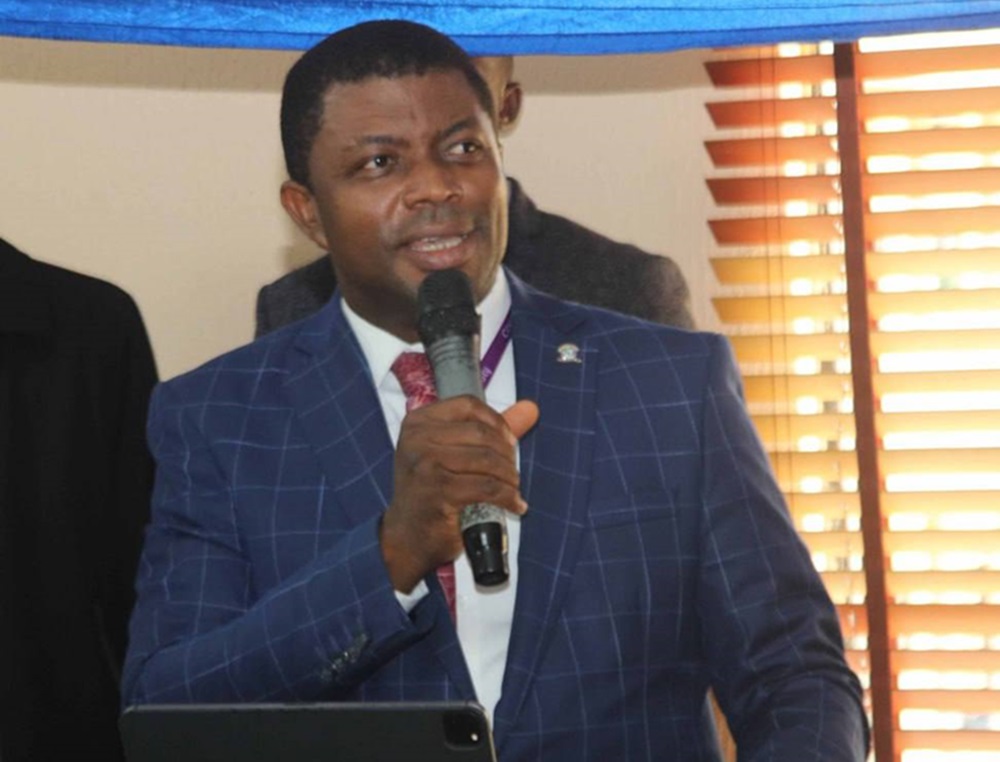The Vice-Chancellor of Covenant University, Professor Abiodun H. Adebayo, has called for increased collaboration among researchers from Nigeria's higher institutions to develop solutions for the pressing challenges facing the African continent, particularly in the areas of energy and power.
He made this call during the opening ceremony of the International Conference on Science and Sustainable Development (ICSSD) 2024, which was jointly hosted by the Departments of Physics and Estate Management in the College of Science and Technology (CST), Covenant University.
In his opening remarks, Professor Adebayo expressed his excitement about the ongoing success of ICSSD, which has become one of the most consistent and impactful conferences at Covenant University. He expressed his gratitude to the organizers and participants for making the eighth edition of the conference possible.
Professor Adebayo emphasized the need for scientific innovation to address the urgent energy crisis and climate challenges facing Africa, calling on researchers to develop energy-efficient solutions, such as self-illuminating bulbs and eco-friendly buildings designed to withstand the effects of climate change.
He highlighted the importance of interdisciplinary collaboration, pointing out that while the Department of Physics focuses on energy and ecosystem issues, the Department of Estate Management plays a crucial role in designing energy-efficient buildings. He urged the audience to think beyond conventional approaches and consider energy use at every stage of building design and construction.
"This is a wake-up call for us all to work towards a sustainable, energy-efficient environment, starting from the very design phase of buildings and extending through to their completion," Professor Adebayo said.
In her remarks, Professor Mojisola Usikalu, Head of the Department of Physics and a key organizer of the conference, traced the origins of ICSSD to 2016. The conference was established to create a platform for the exchange of ideas among researchers and stakeholders committed to sustainable development.
Professor Usikalu underscored that the conference aims to stimulate cumulative research in science and technology, providing solutions to global challenges such as poverty, food insecurity, unemployment, lack of potable water, power shortages, and corruption—issues that are aligned with the United Nations Sustainable Development Goals (SDGs).
She urged participants to leverage scientific research to address climate change and power inefficiencies, stressing that each conference session presents an opportunity to develop actionable solutions to these critical challenges.
Professor Timothy Anake, Dean of the College of Science and Technology, also addressed the gathering, emphasizing that the conference theme is a call for urgent action. "Everything around us is interconnected with science, and if we do not take sustainable action soon, we risk losing what we hold dear," he warned. "We must harness science, innovation, and creativity to confront these challenges."
Professor Anake also stressed the importance of resilience in addressing climate change and energy sustainability. "The work of science is to find answers to these critical questions," he said. "We must continue monitoring the environment to address these issues, especially climate change and energy sustainability."
The first keynote speaker, Professor O.A. Ogunba, from the Built Environment Faculty at Obafemi Awolowo University, Ile-Ife, echoed the call for multidisciplinary collaboration. He identified climate change as one of the greatest environmental challenges facing the world today, tracing its origins to the Industrial Revolution. "While societal development is necessary, it has come at the cost of environmental degradation," Professor Ogunba explained.
He pointed out that Nigeria's reliance on non-renewable energy sources has contributed significantly to greenhouse gas emissions, which, in turn, have exacerbated global warming and climate change. "Nigeria is a major contributor to greenhouse gases, which are responsible for the rising temperatures," he noted.
Professor Ogunba emphasized the importance of climate resilience, which involves two key approaches: first, mitigating the causes of climate change, and second, helping people adapt to its effects. He also stressed the need for a transition to renewable energy sources to ensure long-term sustainability.
Lastly, he called for greater collaboration among professionals in the built environment, including estate managers, architects, quantity surveyors, building technologists, and civil engineers, to develop more eco-friendly and energy-efficient buildings.
The conference, which continued over several days, provided a unique opportunity for researchers, policymakers, and industry stakeholders to come together and forge solutions to the climate and energy challenges facing Nigeria and the African continent.

